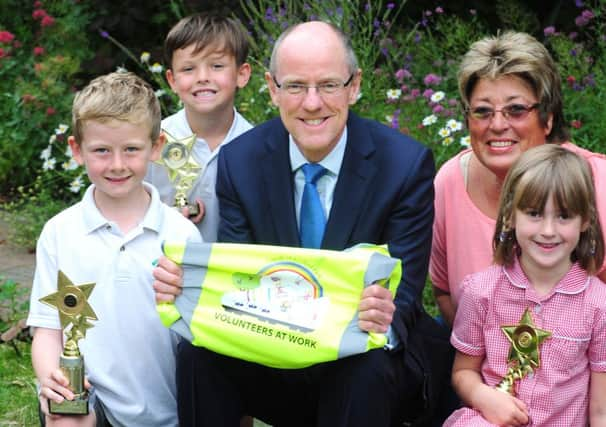New schools minister vows to tackle illiteracy


Prime Minister David Cameron announced the news that Mr Gibb was to be reinstated at the Minister of State for Schools.
In a Tweet, on Tuesday afternoon, the Prime Minster said: “Nick Gibb returns to Government as Minister of State for Schools - working with Nicky Morgan to ensure no let-up in education reforms.”
Advertisement
Hide AdAdvertisement
Hide AdSpeaking to the Gazette just hours after the news broke, Mr Gibb said he was both ‘shocked’ and ‘honoured’ at the confidence the Prime Minister had shown in him.
“I was very pleased by the reshuffle,” he said. “I was surprised obviously and very honoured to be going back to education.
“There’s obviously a lot of work to do but I am absolutely delighted by the Prime Minister’s decision.”
Conservative MP Mr Gibb previously served as Minister of State for Schools in the Department for Education from May, 13, 2010, until September 4, 2012.
Advertisement
Hide AdAdvertisement
Hide AdHe was sacked from the position during the last reshuffle by Mr Cameron.
However, he admitted he held no hard feelings over the decision.
“I was reshuffled because of the Coalition’s politics at the time and I understood the decision,” he said. “But that is just how politics can be sometimes.”
As part of this week’s reshuffle, the Prime Minister demoted education secretary Michael Gove to chief whip – much to the jubilation of teaching unions across the country who had often clashed with the struggling secretary.
Advertisement
Hide AdAdvertisement
Hide AdMr Gibb will now be working alongside Nicky Morgan, who replaced Mr Gove as education secretary.
His key task would be to improve literacy levels across the board, targeting children on the cusp of heading into secondary school.
“My passion was, and remains, eliminating illiteracy in education,” he explained. “Every child should be leaving primary school as a fluent reader.”
He said that recent statistics showed one in five 11-year-olds were leaving primary school still struggling to read.
Advertisement
Hide AdAdvertisement
Hide AdHe stressed that this was a problem which needed to change and that it was one he was committed to tackling during his time in office.
Mr Gibb added: “Reading is the basis of education.
“Without it, you cannot read chemistry books, understand road signs or learn French.
“Even mathematics requires a level of reading. So it is vitally important that we improve the current situation.”